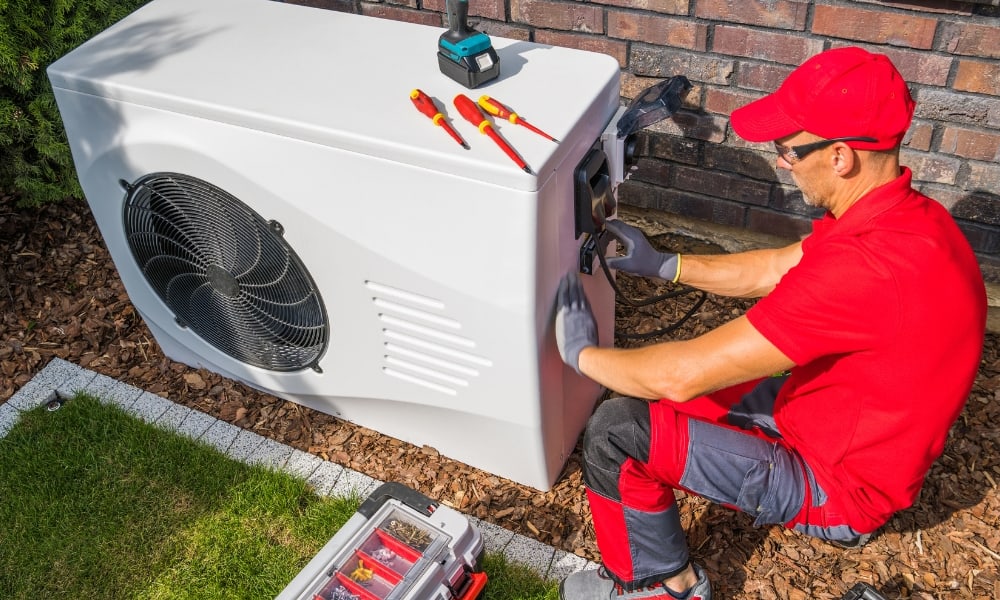HVAC Technician Training: What to Expect and How to Get Started
HVAC technician training programs can offer valuable knowledge for those interested in heating, ventilation, and air conditioning systems. Learn what to expect from training, the skills gained, and how others begin their journey in this field. Learn more inside.

What are HVAC training programs?
HVAC training programs are specialized courses designed to prepare students for careers in heating, ventilation, air conditioning, and refrigeration. These programs typically combine classroom instruction with hands-on training, providing a comprehensive understanding of HVAC systems. Students learn about installation, maintenance, and repair of various heating and cooling equipment, as well as the principles of thermodynamics, electrical systems, and safety protocols.
Most HVAC training programs are offered by vocational schools, community colleges, and technical institutes. The duration of these programs can vary, ranging from six months to two years, depending on the level of certification or degree offered. Some programs may also include apprenticeship opportunities, allowing students to gain real-world experience while completing their education.
How do you become an HVAC technician?
Becoming an HVAC technician involves several steps:
-
Complete high school or obtain a GED: Most HVAC training programs require a high school diploma or equivalent as a prerequisite.
-
Enroll in an HVAC training program: Choose a program accredited by organizations such as HVAC Excellence or the Partnership for Air-Conditioning, Heating, Refrigeration Accreditation (PAHRA).
-
Gain hands-on experience: Participate in internships or apprenticeships to apply your knowledge in real-world settings.
-
Obtain necessary certifications: Depending on your location and specialization, you may need to acquire specific certifications, such as EPA Section 608 for handling refrigerants.
-
Consider specializations: HVAC technicians can specialize in areas like residential systems, commercial refrigeration, or solar technology.
-
Pursue continuing education: Stay updated with the latest technologies and regulations through ongoing training and professional development courses.
What skills are learned in HVAC training?
HVAC training programs equip students with a diverse set of skills essential for success in the field:
-
Technical knowledge: Understanding the principles of heating, cooling, and ventilation systems, including how to read blueprints and schematics.
-
Electrical expertise: Learning about electrical circuits, wiring, and controls used in HVAC systems.
-
Troubleshooting and problem-solving: Developing the ability to diagnose and repair issues in various HVAC equipment.
-
Safety practices: Mastering safety protocols for working with potentially hazardous materials and in challenging environments.
-
Customer service: Honing communication skills to interact professionally with clients and explain technical concepts clearly.
-
Computer literacy: Familiarizing with digital diagnostic tools and software used in modern HVAC systems.
-
Mechanical skills: Gaining proficiency in using hand and power tools for installation and repair tasks.
What does heating and cooling system education cover?
Heating and cooling system education forms the core of HVAC training programs. Students delve into various aspects of these systems, including:
-
Thermodynamics: Understanding the principles of heat transfer and energy efficiency.
-
Air distribution: Learning about ductwork design, airflow patterns, and ventilation requirements.
-
Refrigeration cycles: Studying the processes involved in cooling and dehumidification.
-
Heating technologies: Exploring different heating methods, including furnaces, boilers, and heat pumps.
-
Indoor air quality: Understanding the importance of proper ventilation and air filtration.
-
Energy management: Learning about energy-efficient systems and sustainable practices in HVAC.
-
Building automation: Introduction to smart HVAC systems and their integration with building management technologies.
How much does HVAC training cost?
The cost of HVAC training can vary significantly depending on the type of program, location, and duration. Here’s a general overview of the costs associated with different HVAC training options:
| Program Type | Duration | Estimated Cost Range |
|---|---|---|
| Certificate Program | 6-12 months | $1,200 - $15,000 |
| Associate Degree | 2 years | $6,000 - $35,000 |
| Apprenticeship | 3-5 years | $500 - $2,000 (plus earning while learning) |
| Online Courses | Varies | $500 - $5,000 |
Prices, rates, or cost estimates mentioned in this article are based on the latest available information but may change over time. Independent research is advised before making financial decisions.
It’s important to note that while some programs may have higher upfront costs, they often lead to better job prospects and higher earning potential. Additionally, many schools offer financial aid, scholarships, or payment plans to help offset the cost of education.
What career opportunities exist after HVAC training?
Completing an HVAC training program opens up a variety of career paths. Graduates can find employment in residential and commercial settings, working for HVAC companies, construction firms, or even starting their own businesses. Some potential career options include:
-
HVAC Technician: Installing, maintaining, and repairing heating and cooling systems in homes and businesses.
-
HVAC Engineer: Designing HVAC systems for new construction projects or retrofitting existing buildings.
-
Energy Auditor: Assessing building energy efficiency and recommending improvements.
-
Refrigeration Specialist: Focusing on commercial and industrial refrigeration systems.
-
Solar HVAC Technician: Specializing in solar-powered heating and cooling systems.
As the demand for energy-efficient and environmentally friendly HVAC solutions continues to grow, skilled technicians are likely to find ample opportunities in this evolving field.
In conclusion, HVAC technician training provides a solid foundation for a career in a dynamic and essential industry. By understanding what to expect from training programs and how to get started, aspiring HVAC professionals can make informed decisions about their education and career path. With the right skills and certifications, HVAC technicians can look forward to a stable and rewarding career in a field that plays a crucial role in our daily comfort and well-being.




